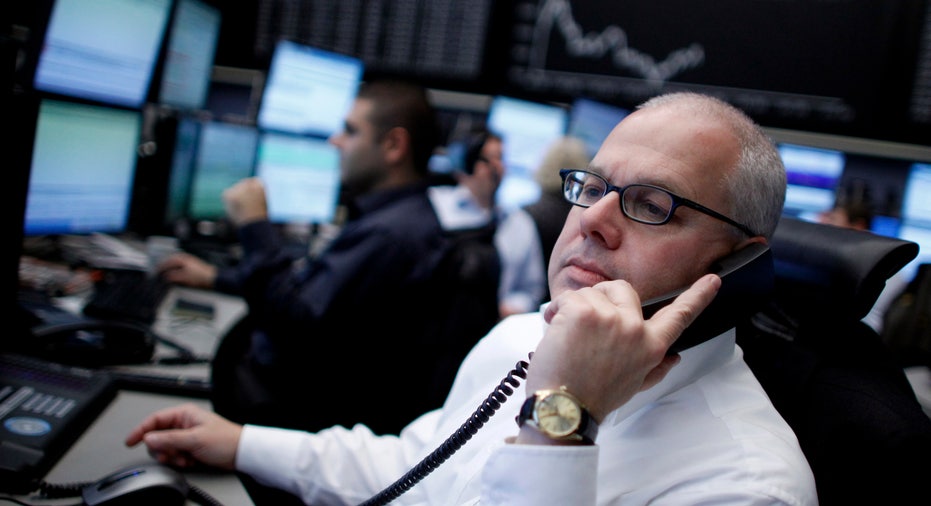European Stocks Fall as ECB Takes Spotlight

Spanish and Italian government bond yields fell on Tuesday and the euro rose after the head of the European Central Bank hinted at the scope of a much-anticipated bond buying programme.
The ECB is expected to unveil its debt-purchasing scheme to tackle the region's debt crisis at a policy meeting on Thursday, where it may also cut rates as the 17-nation euro area heads towards a recession.
European shares were lower, however, having already risen strongly on hopes that central bank action could start the fightback against the euro zone's chronic debt problems.
"There are expectations that the ECB will detail bond buying plans for shorter term maturities and do something on the interest side, but more or less these aspects are priced in (for shares)," said Christian Stocker, equity strategist at UniCredit.
ECB President Mario Draghi told European lawmakers on Monday that buying short-term sovereign debt did not breach any European Union rules, which markets saw as a sign the bank may resume purchases of short-dated Spanish and Italian bonds.
The two-year bond yields of Spain and Italy were both down 12 basis points at 3.39 percent and 2.59 percent, respectively, though moves on longer maturities were much smaller.
The single currency also gained support from Draghi's statement, up 0.2 percent at $1.2615, hovering close to a high of $1.26378 posted last Friday, which was its strongest level since early July.
Equity investors were more cautious, having rallied since late July when Draghi promised to do everything possible to save the euro, which some traders believe has left the market vulnerable to a sell-off.
"If the ECB disappoints, the reaction would be on the negative side, but I don't expect a dramatic sell-off as focus will shift to other events," said Stocker.
The FTSEurofirst 300 index of top European stocks, which has rallied by 7 percent since late July, was down 0.4 percent at 1,087.30 points in early trade.
The MSCI world equity index, which has risen since Friday on talks of more monetary stimulus by the U.S. Federal Reserve, was down 0.3 percent at 322.27 points.
Credit rating agency Moody's also changed its outlook on the "Aaa" rating of the European Union to negative and warned it could downgrade the EU, putting more pressure on the ECB to act.
FED ACTION
If the ECB plan is viewed positively by investors, attention will likely turn quickly to the Fed's policy meeting next week, when it could also consider another round of bond buying to help reinvigorate a fragile recovery in the domestic economy.
The U.S. Institute for Supply Management's manufacturing data due later could support speculation of a Fed move if it reflects similar surveys out of Europe and Asia on Monday that showed factory activity slowing around the world.
Friday's August U.S. non-farm payrolls report will also be crucial to hopes of an easing.
The prospect of action by central banks, which could also include the People's Bank of China as growth in the world's No. 2 economy has tapered off, was lending good support to oil and precious metals prices on Tuesday.
Brent crude was up for a fourth day at $166.48 a barrel and near a three-week high.
"The main driver at the moment is the expectation around an ECB announcement on Thursday - investors are looking for some indications of more bond buying," said Filip Petersson, Commodity Strategist at SEB Commodity Research.
The gold price, which has enjoyed more dramatic gains on growing speculation over central bank stimulus measures, was around a 5-1/2 month at $1,696.91 an ounce.
Investors have been piling into both gold and silver as a hedge against inflationary pressure from central banks' pumping money into the global economy.
Spot silver, which serves as both a precious and an industrial metal, has risen nearly 10 percent in two weeks, outstripping the 4 percent gain in gold in the same period.



















